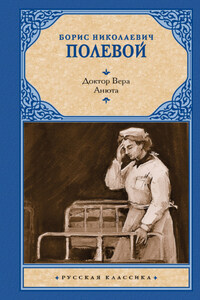18 March 2003, 7.08 p.m.
When Runner Coghill fell through the ceiling, she interrupted what we can only call a domestic quarrel.
Of the arguers in question, the young man’s name was Dumuzi, though his name has been changed to protect the innocent (that is, Dumuzi). Moments before, he had been huffing and puffing from the cold, for which he was wilfully underdressed, and standing with his sometimes girlfriend Anna, inside the front entrance to the warehouse at 5819 St-Laurent, a building that, against all probability, she owned.
Anna had called him, out of the blue, on what he thought was the first warmish day of the year, although that had turned out to be an illusion propagated by the phone call and Anna’s attention; in fact, it was cold, but Anna was bored and looking for company to walk around downtown. They had met in the early afternoon and walked down the hill into the late afternoon. Anna telling him about her classes – a bit of philosophy, a bit of English, the only thing she liked was anthropology, or at least she liked the idea of anthropology, though the reality of anthropology was boring and more boring. The sound of her voice so soothed his chronic spikes of sexual anxiety – brought on by her arbitrary pattern of granting and withholding affection – that he began to question whether he’d ever felt them in any serious way.
Now it was freezing raining and it was evening, and Anna, who was wet, wanted to go inside and find a clean corner where the two of them would be able to pile some remnants of her grandfather’s old shmatte1 emporium into something that might resemble a bed and a blanket, beside a pale beam of streetlight they could roll into when they were done. Her other conditions included a solid ceiling above their heads and no turds, human or otherwise, at least not nearby. She didn’t mind a little dust and dirt though, since, as Du had noticed, she hadn’t washed for some time, either her clothes or her person, and had embarked on a more animal form of grooming.
It was a slow negotiation, because Anna was offering Du what he’d been pining after through the entire winter, that is to say, she was offering sex, in a warehouse that suddenly didn’t seem so filthy because of the way the light filtered out of the darkness and the dust and the endorphins that were suddenly released into Dumuzi’s brain. But she wanted him to pay her for it. To see what it was like. And her proposal was slowing him down.
A little note about Dumuzi: his hormones were raging, but he tried to be polite about it. He was a big squarish guy, but when you looked at him you got the whole picture. He wasn’t a bobbing Adam’s apple or a collar or a grin. There was nothing about his maleness that was easily Atwoodian. It would be unfair to describe him like that, even though he was a boy and the reader might not like boys.2 He tried to keep tidy. He wore clean lines. He was a whole guy, albeit a young guy who just needed, very desperately, to get laid. Where Anna was concerned, he definitely did not like who he became when he was with her, but still he wanted to be with her and wished only to change who he was and how and what he thought.
1 Yiddish: dress or garment. Literally a rag.
He asked Anna where she’d gotten the idea and she told him how earlier in the day an elderly gentleman had mistaken her for a prostitute and propositioned her while Du was buying gum. This shocked him almost as much as the proposal itself and he looked away, shuffling in a head-bowed, punch-drunk silence.








